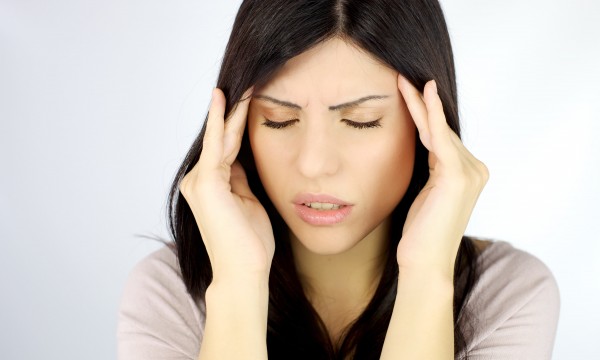It's not unusual to experience the sensation of your heart beating in your head. While similar to a common headache, it has been described as more of a fluttering or palpitation feeling in the head. So when should you be concerned? Here's some advice to help answer your concerns.
- Browse Categories
- All Tips
-
Home & Garden
- All
- Appliances
- Bathroom
- Cleaning
- Crafts
- Decorating
- Electrical
- Flooring
- Furniture
- Garage Door
- Gardening
- Green Living
- Heating
- Home Alarm Systems
- Home Maintenance
- Home Remedies
- Home Security
- Home Staging
- House Sitting
- Junk Removal
- Kitchen
- Lawn Care
- Lock Systems
- Moving
- Outdoor Living
- Pest Control
- Plumbing
- Renovation
- Roofing
- Snow Removal
- Storage
- Tools
- Tree Service
- Health
- Family
- Travel
- Auto
- More Tips

Why do I feel my heart beating in my head?
November 16, 2014

Symptoms to look for
Although the sensation of your heart beating in your head may be alarming and worrisome, these types of palpitations are usually harmless. In certain instances, however, they could potentially suggest the presence of a more serious heart condition, such as an irregular heartbeat, that may require medical intervention as suggested by your doctor.
- People who develop such palpitations may also feel as though their heart is pounding, skipping a beat, beating too fast or pumping harder than usual.
- Aside from the head, these sensations may be felt in the neck, chest or the throat areas.
- Heart palpitations can occur either at rest or when active, when lying down or standing up.
If and when you experience palpitations, make a note of what you were doing at the time should you decide to seek advice from a doctor.
Complications to be aware of
Unless you have an underlying heart condition, the risk of developing complications from palpitations is low. However, if heart disease runs in your family, you have a history of it, or you experience palpitations that get progressively worse, then you should consult a doctor.
- Possible complications for palpitations caused by a heart condition include fainting, stroke, dizziness, cardiac arrest and heart failure.
- Sometimes the heart beats so fast that it becomes ineffective as a pump, compromising blood flow to the rest of the body and occasionally resulting in dizziness and fainting spells.
In general, palpitations that occur infrequently and last only a few seconds may not require you to see a doctor. There's a chance they may not need any treatment.
- However, people with heart disease or recurrent palpitations should seek emergency medical attention promptly if the palpitations are accompanied by severe dizziness, chest pain, shortness of breath or fainting spells.
What exactly causes palpitations?
There are many causes of palpitations including stress, intense exercise, tobacco, caffeine, fever and taking certain cold and asthma medications. The hormone changes accompanying pregnancy, menopause and menstruation can also trigger palpitations.
- Heart palpitations can periodically be a sign of an overactive thyroid gland or may signal abnormal heart rhythm. Both of these conditions are potentially serious and should be treated by a doctor.
How are palpitations diagnosed?
If your doctor suspects you have heart palpitations then he or she will use a variety of methods, most commonly starting with a stethoscope to listen to your heart. Other tests your physician may perform include:
- You could be asked to wear a portable device for the next 24 to 72 hours that continuously records your heartbeats.
- The doctor may request an electrocardiogram to record the pattern of electrical impulses that make your heart beat.
- An ultrasound of your heart and chest, called an echocardiogram, is sometimes done to "see" the structure and function of the heart.
How can palpitations be treated?
In most cases if no underlying physical reason can be determined, such as heart disease, palpitations seldom require treatment. In this instance, most healthcare professionals will typically recommend ways to avoid triggers that may cause them.
If an abnormal heart rhythm is suspect, the treatment might be to correct the original cause as per your doctor's recommendations. In contrast, mild palpitations that occur infrequently can sometimes be treated by making lifestyle changes such as:
- Reducing stress and avoiding anxiety attacks. Several relaxation techniques like yoga, meditation and deep breathing exercises can help lower stress.
- Avoiding caffeinated beverages, tobacco and energy drinks. The stimulating effect may cause your heartbeat to speed up.
- Avoiding illicit drugs, like cocaine, that can bring on heart palpitations.
If palpitations are associated with an irregular heartbeat, sometimes medication or relatively minor surgical procedures can be performed to help restore a regular heart rhythm.
Whatever the reason for the palpitations, it's vital that you do not ignore them.
- Sometimes the subtlest symptom, such as dizziness paired with an irregular heartbeat, could be a sign of a more serious cardiac problem.
Whatever the cause of your palpitations, as determined by your doctor, at the end of the day it's important to follow his or her advice because your doctor is a partner in helping you to maintain the best health possible.






